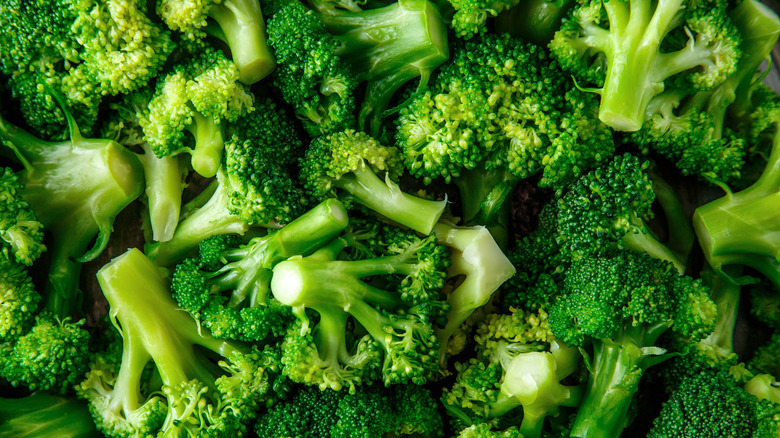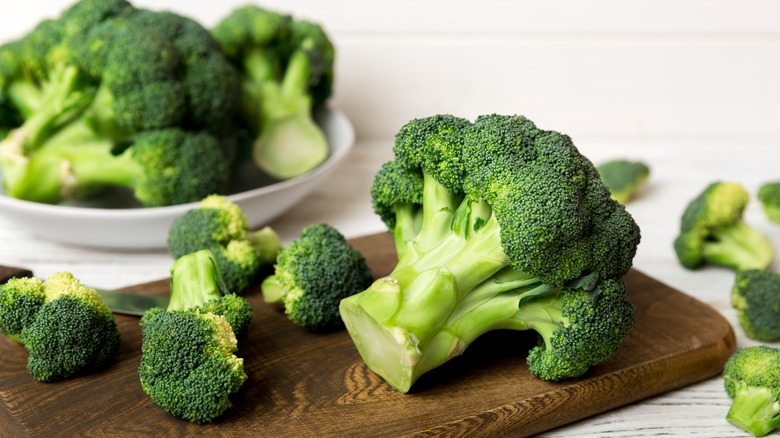Why Broccoli Was Originally Called 'Italian Asparagus' In English
When it comes to eating vegetables, you either love them or hate them. Thankfully, there are tons of choices when it comes to getting your daily intake of veggies — asparagus, broccoli, carrots, lettuce — so you'll often find your liking to at least one. According to Statista, the average person consumes close to 140 pounds of fresh vegetables every year, so whether you like to eat them plain or not, you'll probably find vegetable-based ingredients in some of your other packaged foods and drinks (hello, smoothies) that you eat.
Vegetables are just about as versatile in cooking as you make them to be, but broccoli has stood up against the test of time to make consuming vegetables fairly easy. Just like in every classic kids movie, you might struggle eating it due to its boasting deep green color and weird smell when cooking it. But if you take away all your preconceived notions about the vegetable, you'll find that it has a pretty cool backstory that a lot of people might not know.
Broccoli is a very historical vegetable
Believe it or not, broccoli has quite the history. Having been engineered from a cabbage by the Etruscans dating back to the Roman Empire, broccoli has served many nations throughout the centuries due to its hearty taste and versatility in cooking (via The Spruce Eats). Labeled as an "edible flower" due to its edible stalks and flower florets, the mean-green vegetable first earned the name "Italian asparagus" by the English when it was introduced to them in the mid-1700s. It was officially named and labeled as such in Miller's Gardener's Dictionary in 1724, very much resembling both the head of a cabbage and stalk-like appearance of an asparagus. The name actually makes sense too, since the word "broccoli" is derived from the Latin "brachium," meaning "arm, branch, or sprout" (via La Cucina Italiana).
It would be two whole centuries later in 1922 when broccoli seeds were introduced to California, where it would make its first appearance in the United States to be served among another vegetable options for American families (via La Cucina Italiana). With a name like "Italian asparagus," would it incline you more or less to eat the vegetable?

